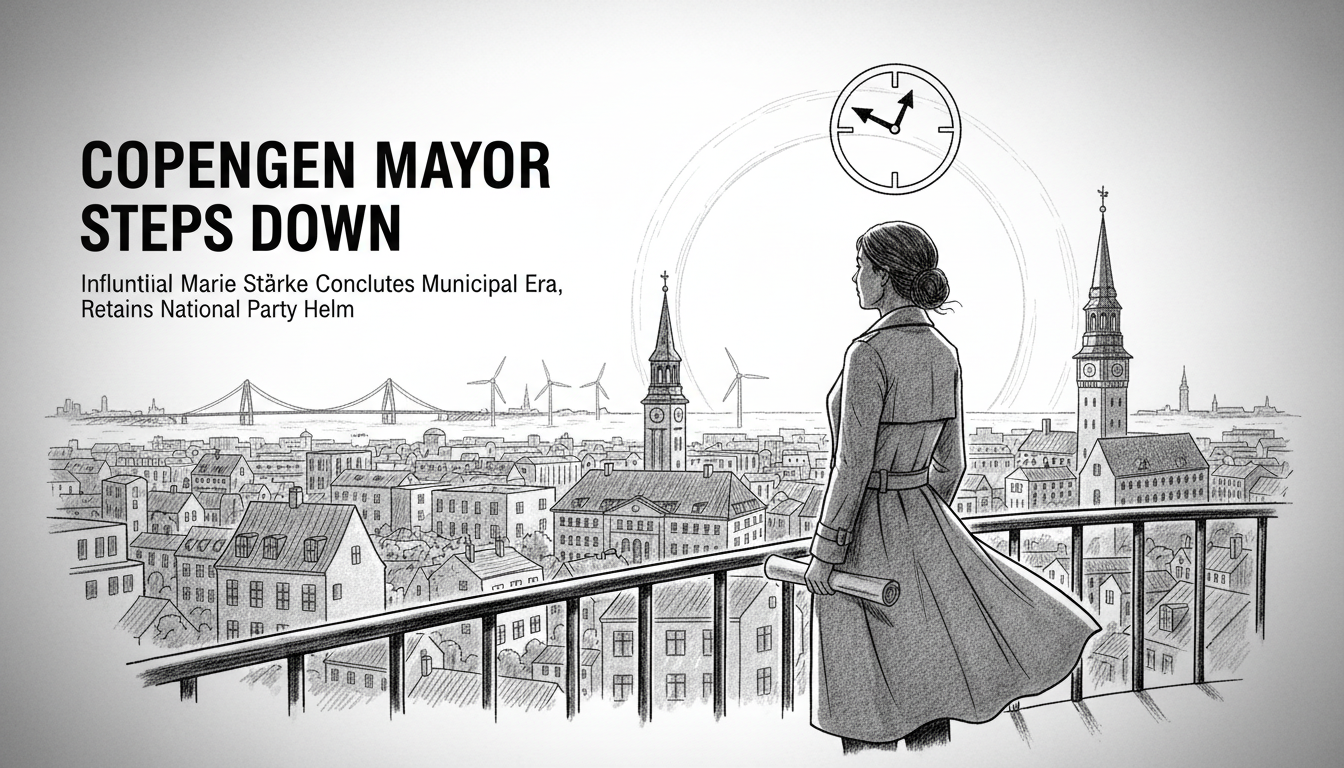Marie Stærke, one of Copenhagen's most prominent political figures, announced her departure from municipal politics this week. The Social Democrat politician revealed her decision through a social media statement that quickly circulated across Danish political circles. She will maintain her position as deputy chairperson within her party's national leadership structure.
Stærke's political career spans multiple terms as Copenhagen's mayor, during which she shaped significant urban development and integration policies. Her tenure witnessed substantial changes in Denmark's approach to social welfare and immigrant inclusion programs. Many political observers consider her one of the most influential local politicians in Copenhagen's recent history.
This leadership transition occurs during a critical period for Danish social policy. Municipal governments across Denmark currently face complex challenges regarding integration and welfare distribution. Copenhagen's approach to these issues often sets precedents for other Danish municipalities to follow.
Local integration centers and community organizations now watch closely to see how this change might affect ongoing programs. Copenhagen integration initiatives have shown measurable progress in recent years, with employment rates among immigrant populations increasing by approximately 15% over the past several quarters. Educational attainment statistics similarly demonstrate gradual improvement across diverse communities.
Community leader Amina Hassan expressed cautious optimism about the transition. "Marie Stærke established strong foundations for inclusive urban development," Hassan noted in a community meeting. "The incoming leadership must build upon these achievements while addressing remaining gaps in service delivery."
The Danish welfare system relies heavily on municipal implementation of national policies. Leadership changes at this level can significantly influence how social programs reach residents. Copenhagen's approach to housing allocation, language education, and employment support often serves as a model for other urban centers.
Denmark immigration policy continues evolving amid broader European discussions about integration and border management. Local political leadership plays a crucial role in translating national directives into community-level practices. The balance between maintaining social cohesion and welcoming newcomers remains a central challenge for Danish municipalities.
Political analysts suggest Stærke's departure creates opportunities for new approaches to persistent urban challenges. The coming months will reveal whether her successor continues established policies or introduces different priorities for Copenhagen's development. The transition occurs as Denmark prepares for broader municipal elections next year.
Social centers throughout Copenhagen report increased community interest in the leadership change. Many residents seek reassurance about continuity in local services and support programs. Municipal officials have scheduled public forums to address these concerns directly.
This political transition reflects broader patterns in Scandinavian leadership cycles. Danish society frequently witnesses such transitions between established politicians and emerging leaders. The system's strength lies in its ability to maintain policy continuity while allowing for fresh perspectives.
What does this mean for Copenhagen's international community? Expatriate residents often rely heavily on municipal services for integration support. Language programs, housing assistance, and employment services typically fall under municipal management. The incoming leadership's approach to these services will significantly impact quality of life for both new arrivals and established international residents.

